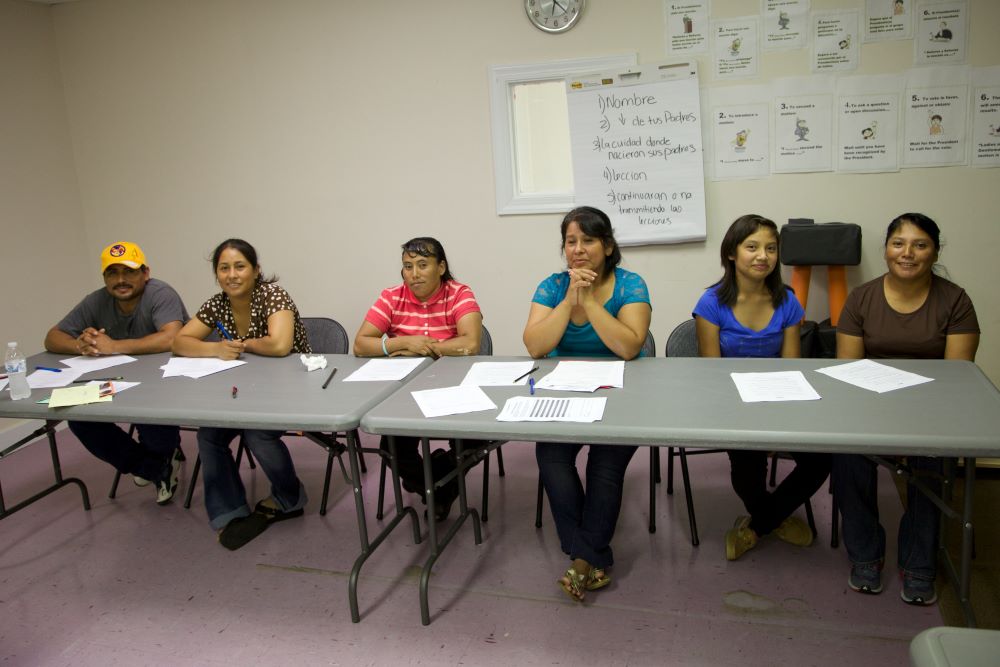 A key responsibility of a Head Start health manager is to offer health education to children, families, and staff. Through health education, health managers and health services staff can help families make healthy choices and become advocates for themselves and their children.
A key responsibility of a Head Start health manager is to offer health education to children, families, and staff. Through health education, health managers and health services staff can help families make healthy choices and become advocates for themselves and their children.
Health education opportunities can provide children, families, and staff with resources, information, and connections that may have a positive impact on their health outcomes and move them towards achieving health equity.
Educational opportunities may include formal training, printed handouts, electronic resources, and professional development events, as well as more informal activities that occur during socializations, conversations with families at drop-off or pick-up, and through modeling by Head Start staff.
Delivering high-quality health education requires good relationship building and communication skills. Health educators succeed when they know what information is important and how to provide it in a way others can understand. Health literacy is an important strategy and intervention for ensuring health information is accessible, understandable, and useable. By focusing on the literacy level of the health education provided, health managers ensure the delivery of services and education that is easy to understand and use, as well as seeks to improve health, longevity, and quality of life.
Keep these three key elements of health education in mind:
- Assist staff and families to understand children's healthy growth and development and the connection between health and school readiness.
- Share culturally, linguistically, and developmentally appropriate science-informed health education materials with children, families, and staff. This includes making sure the materials are accessible to learners with disabilities.
- Apply the principles of health literacy when communicating with staff and families.
A critical task of the health manager is to ensure that staff understand the overall delivery system of health services as well as the policies, procedures, and best practices related to health. Providing training and professional development on these topics is often the responsibility of the health manager. Partnering with the program’s leadership team to develop a plan for continuing education on health services will increase awareness among all staff as well as provide a more robust system of support for children and families.
Tips and Strategies for Health Education
- Learn about Adult Learning Principles and the research of Dr. Malcolm Knowles to understand how to apply the theory of adult learning.
Collaborating with Families
A partnership with parents and caregivers is important to ensuring a child’s success in the Head Start program and beyond. Health managers assist in facilitating the collaboration between families and Head Start staff that is needed to accomplish the goals outlined in the HSPPS of assessing child health status and ensuring follow-up of health concerns.
One strategy for engaging families is through health education. Exposing families to accurate information and resources is one way education can be used as a tool to support families in making informed decisions about their child’s health care.
In addition, families play a critical role in health education by serving as advocates within the community. Equipping parents and caregivers with the knowledge, tools, and strategies to advocate for their family empowers them to be an active participant in their child’s health care and their family’s well-being. They also bring their perspective and experience with Head Start services to their interactions with other individuals and groups in the larger community.
Identify the individuals in your program who have already established relationships with a parent or caregiver and encourage them to be an advocate for sharing key health messages and information with families. For some families, this may be the classroom teacher. For others, it may be the family service worker or bus aide. Providing all staff with the information and resources they need to discuss comprehensive Head Start health services becomes an opportunity to extend the reach beyond just the health manager.
Tips and Strategies for Collaborating with Families
- Share information regularly with family engagement and home visiting staff to help them highlight the important role health plays in the family’s overall well-being.
- Learn more about health and wellness activities in your area and share this information with families.
- Identify and share information about nutrition assistance programs, including the Supplemental Nutrition Assistance Program (SNAP), the Special Supplemental Nutrition Program for Women, Infants, and Children (WIC), and food banks.
- Post information on nutrition and meal planning.
- Model positive health by taking good care of yourself.
Read more:
Resource Type: Article
National Centers: Health, Behavioral Health, and Safety
Audience: Directors and Managers
Last Updated: May 30, 2023